In Angular 2 are there any specific pitfalls regarding memory management, I should be aware of?
What are the best practices to manage the state of components in order to avoid possible leaks?
Specifically, I've seen some people unsubscribing from HTTP observables in the ngOnDestroy method. Should I always do that?
In Angular 1.X I know that when a $scope is destroyed, all listeners on it are destroyed as well, automatically. What about observables in Angular 2 components?
@Component({
selector: 'library',
template: `
<tr *ngFor="#book of books | async">
<td>{{ book.title.text }}</td>
<td>{{ book.author.text }}</td>
</tr>
`
})
export class Library {
books: Observable<any>;
constructor(private backend: Backend) {
this.books = this.backend.get('/texts'); // <-- does it get destroyed
// with the component?
}
};
